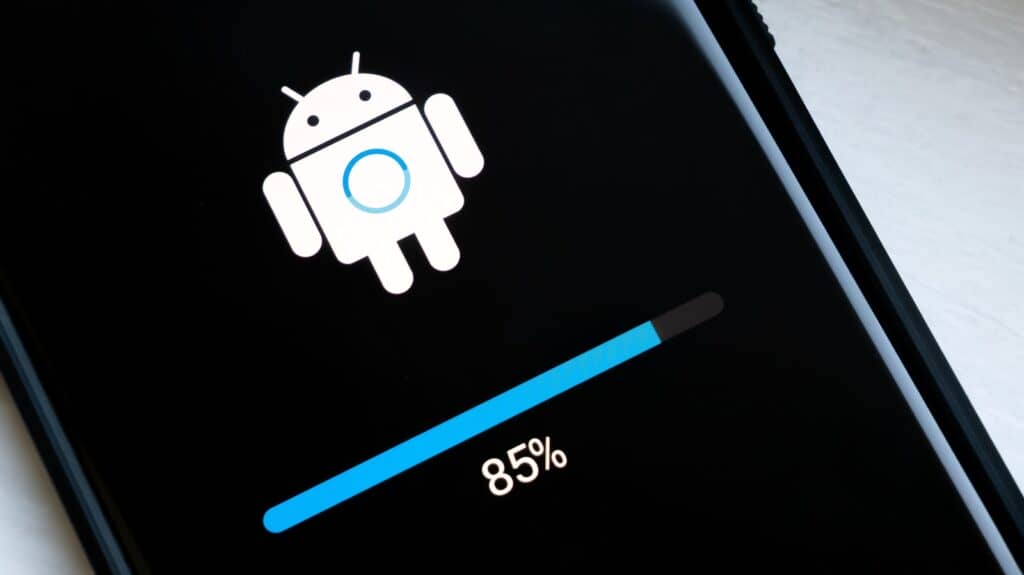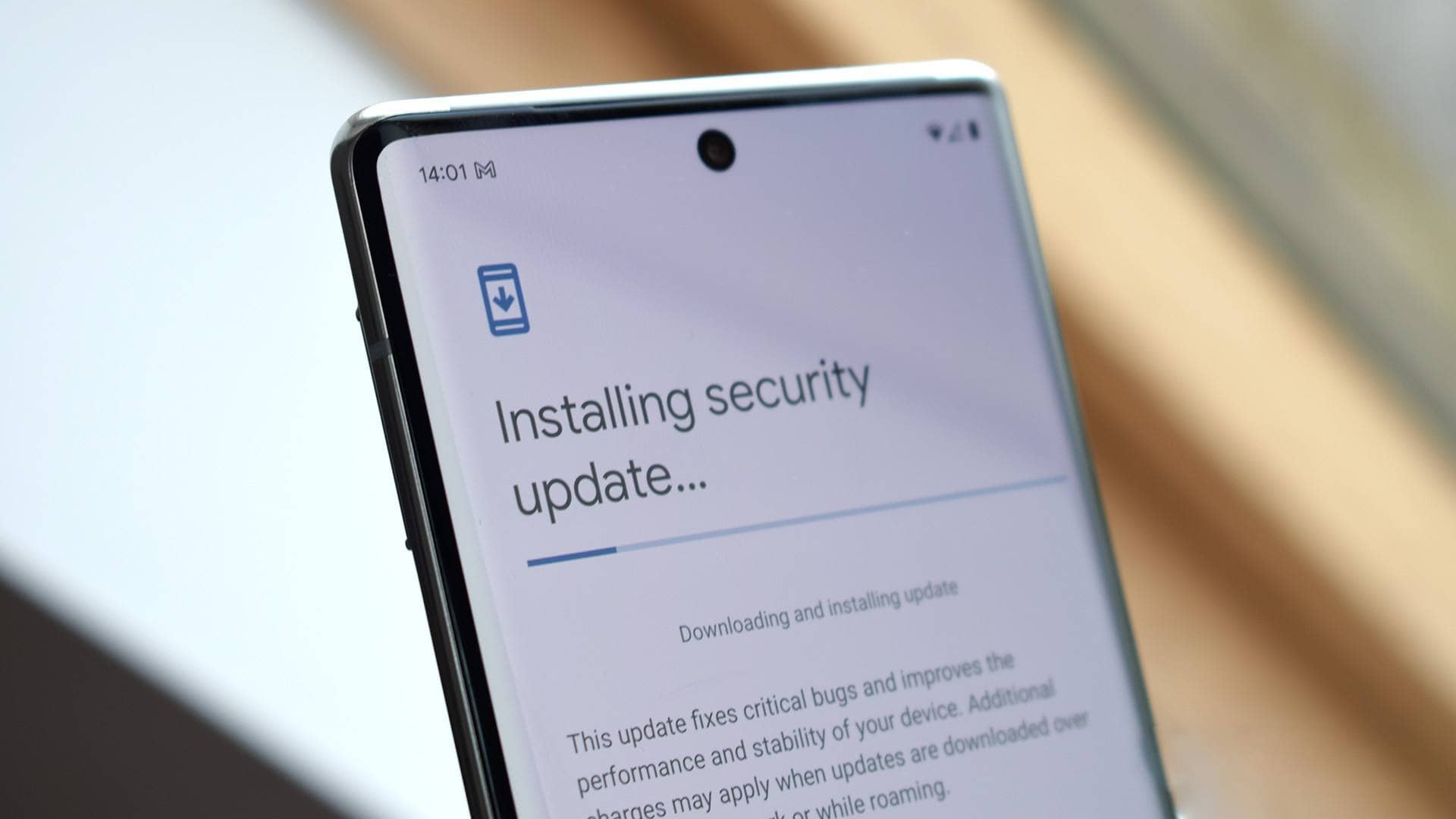Most Android users must be conversant with updates which some find very annoying. Per the research, most operating systems on Android claim that your mobile needs these updates to function correctly.
However, sometimes you love the current update you use so much that you don’t need an upgrade. Since you do not have exclusive control of your Android’s features, you must surrender to the inevitable.
Hence, you watch your device go through a series of updates, some of which make the device less functional.
Why does Android force updates? There are several reasons why your Android forces updates. Most times, your Operating System (OS) gets outdated, and your device needs updates to function correctly.
Android updates are a common feature among Samsung users who know how these updates work. These updates either fix bugs or upgrade specific components for the better part.
Once your Android developer finds better ways to optimize your device’s performance, you get notifications for an update. Read the following sections to determine why your Android needs these updates to function correctly.
Android Updates – Important or not?
An Operating System Update (or OS for short) is one of the essential features of your Android. These updates help your device solve problems, vulnerabilities, and patches and give your phone a fresh look.
Furthermore, these updates make background enhancements you may or may not notice. For Android users, Google ensures you have regular updates to correct bugs. In addition, Google provides new features essential for the normal function of your device.
Consider these updates essential to the phone as your body needs food for normal function. When you get enough food, your body functions properly.
The same goes for Android updates. Google provides these updates, which your manufacturer customizes. Therefore, we can say that these updates remain essential for the normal functioning of your device.
What happens when these updates don’t get installed?

Several things could happen if you neglect these updates. Furthermore, your device could misbehave in various ways. You will notice your Android slowing down. Other times, you won’t have access to certain features available for others on some applications.
When it gets bad, you could notice some applications automatically shutting down. However, while these updates come with pure intentions, some users do not want anything to do with them.
These users complain that the updates made their devices malfunction, become slower, or more. Hence, for them, updating their device is not a good idea.
However, you have to note that stopping your Android phone from updating has some repercussions. Firstly, you may miss out on several exciting features only available to updated devices.
Secondly, you may run the risk of security breaches since your phone’s security system isn’t updated. In addition, some of your applications may become incompatible with your device since they also get updated.
Why did my phone force an update?
It is understandable why you get frustrated when your phone forces an update. For one, your data allowance could be at stake. Some updates take up to 2 GB of your data allowance.
Other times, it could be because you love the features of the current Operating System or update. However, some Android systems update your phone without your permission. So, why do these Androids update your device without your consent?
Your Android device automatically updates itself from the initial settings. From the moment you purchased and set up your device, your Android had permission to update on its own.
Hence, when you have an internet connection, the device automatically updates. What these devices do, most times is to update over WiFi connections. However, if your phone has a significant update, your device could update over your phone’s data.
Why does my Android keep wanting to update?
Your Android keeps wanting updates because they are essential for the normal functioning of your device. Think of it this way. It would help if you had a balanced diet for your body to run smoothly.
When you consume the correct diet, your body fights against several ailments. Furthermore, your body gets to build and repair worn-out tissues. The same goes for your Android device.
These updates help your Android device stay in top shape. With these updates, your phone can fight malware and other harmful viruses that would have attacked your phone.
Furthermore, certain features come with updates that optimize your phone’s performance. It could be the battery life, space, or display. Sometimes, you don’t get to see these upgrades. However, these updates work together to ensure that your Android device stays in one piece.
Specific applications need these updates to work when it comes to mobile applications. Not updating your application means you get barred from usage. Hence, you may want to update your application when you see the notification.
When your applications become too outdated, they either malfunction or stop working as a whole. You can find how to prevent your Android from auto-updating in subsequent sections of this article.
Are Android system updates safe?

Android system updates come directly from mobile manufacturers. Google provides these updates for all manufacturers who tweak them to suit their needs. Your manufacturer reshapes these updates to match the Operating System style and keep the brand’s integrity.
Since these updates come from one supplier, they are usually safe and without harm. Furthermore, these updates undergo several tests by front-end and back-end developers to ensure they work correctly.
Also, a few users sign up to test these updates before they get released into the market. These users’ feedback helps developers curate the best software updates for their phones. They do not get paid for running these tests.
However, it helps other users to keep their devices safe by providing insightful feedback, which gets incorporated in the buildup of the system updates. Hence, these updates come out as perfect or near-perfect releases.
After the release, the manufacturers provide a follow-up update with bug fixes and additional features if any sections need correction.
We can thus say that these Android system updates come from safe sources. Note, however, that your Android device notifies you of any new updates available. You can only download the update via a secure server created by the manufacturer.
If you download the update from any online website aside from your mobile update store, your Android device could get compromised.
Furthermore, the manufacturer will not take responsibility for any damages when you download from unauthorized sources. Hence, you must always download your system updates from the manufacturer only.
What can I do if my phone won’t stop updating?
If your Android phone won’t stop updating, you can deactivate the ‘automatic update’ option. Since the system has forced the update, we suggest that you allow the updates to complete. These updates may be necessary to optimize your phone’s performance.
Hence, it would help if you did not stop them. However, if you feel like you don’t need the updates, you can try to stop these updates.
Your Android device won’t stop updating because you have not unchecked the “Auto-update” feature. To deactivate the auto-update feature, you need to go to your Settings. Scroll down and go to “Software update.”
Tap on the option and deselect “automatic update.” Once you uncheck the option, your Android phone will no longer update automatically. You can restart your phone and observe the behavior.
You can stop the auto-update feature for applications following the guidelines outlined in the section below.
Note that your phone needs these updates. Hence, you may experience performance lags. For applications, you may not gain access to specific applications without updating. Furthermore, some applications could stop working correctly and even shut down.
How do I stop Android forced updates?

Several updates could go on on your phone. The most frequent updates are those from mobile applications. These applications update periodically. It could be weeks or months.
To stop your applications from automatically updating, you need to head to your phone’s Play Store. You can access Play Store from your device’s launcher on the home screen. Scroll down to tap on the Play Store.
Next, tap on the top right or left corner (depending on where you find yours) to reveal the menu. Tap on Settings, then navigate to Network Preferences. You will see “App download preference.”
You can select “Ask me every time.” Next, go to “Auto-update apps” and select “Don’t auto-update apps.” This process will stop your device from auto-updating your applications.
For general system updates, tap on the Settings icon on your launcher. Settings are usually the icon with gears. Next, navigate to the system and go to Updates. There, you will see “update settings.”
Choose the option that lets the device prompt you before any updates. Your phone will not force a system update for most devices until you update it yourself. However, notifications tell you that your device has pending system updates.
It is better to perform system updates over WiFi because they consume a lot of data. You could end up spending gigabytes of data for one system update.
Unlike system updates, individual mobile application updates do not take up so much data. However, when you combine the updates for all the applications, you could use gigabytes of data too.
Summary
System updates on Android devices help your device function correctly. Most updates aim to fix bugs and patches and give your phone a new feel. While you can see the outcome of some updates, you cannot see the difference in others.
However, all updates help your device in one way or the other. Sometimes though, you do not want your phone to update without your permission automatically. It could be because the updates keep eating into your data allowance.
You can prevent your phone from automatically updating by going through the Settings. When you uncheck the setting, your phone will no longer automatically update. Hence, you will have to manually update your phone each time you see an update notification.
In addition, you can leverage the settings in the Play Store to stop your mobile applications from auto-updating. For the health of your device, we advise that you continue to update your Android frequently.
